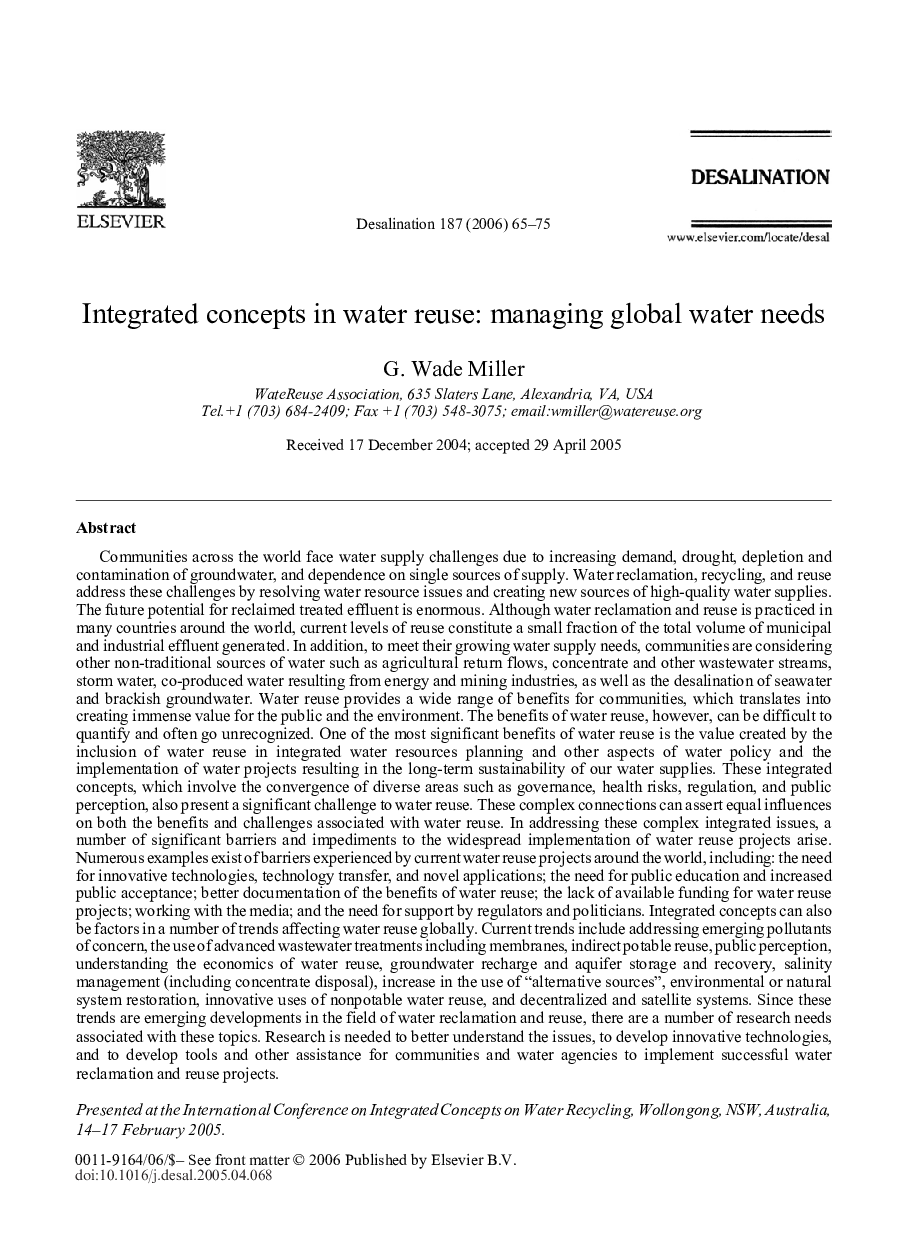| کد مقاله | کد نشریه | سال انتشار | مقاله انگلیسی | نسخه تمام متن |
|---|---|---|---|---|
| 629145 | 1455503 | 2006 | 11 صفحه PDF | دانلود رایگان |

Communities across the world face water supply challenges due to increasing demand, drought, depletion and contamination of groundwater, and dependence on single sources of supply. Water reclamation, recycling, and reuse address these challenges by resolving water resource issues and creating new sources of high-quality water supplies. The future potential for reclaimed treated effluent is enormous. Although water reclamation and reuse is practiced in many countries around the world, current levels of reuse constitute a small fraction of the total volume of municipal and industrial effluent generated. In addition, to meet their growing water supply needs, communities are considering other non-traditional sources of water such as agricultural return flows, concentrate and other wastewater streams, storm water, co-produced water resulting from energy and mining industries, as well as the desalination of seawater and brackish groundwater. Water reuse provides a wide range of benefits for communities, which translates into creating immense value for the public and the environment. The benefits of water reuse, however, can be difficult to quantify and often go unrecognized. One of the most significant benefits of water reuse is the value created by the inclusion of water reuse in integrated water resources planning and other aspects of water policy and the implementation of water projects resulting in the long-term sustainability of our water supplies. These integrated concepts, which involve the convergence of diverse areas such as governance, health risks, regulation, and public perception, also present a significant challenge to water reuse. These complex connections can assert equal influences on both the benefits and challenges associated with water reuse. In addressing these complex integrated issues, a number of significant barriers and impediments to the widespread implementation of water reuse projects arise. Numerous examples exist of barriers experienced by current water reuse projects around the world, including: the need for innovative technologies, technology transfer, and novel applications; the need for public education and increased public acceptance; better documentation of the benefits of water reuse; the lack of available funding for water reuse projects; working with the media; and the need for support by regulators and politicians. Integrated concepts can also be factors in a number of trends affecting water reuse globally. Current trends include addressing emerging pollutants of concern, the use of advanced wastewater treatments including membranes, indirect potable reuse, public perception, understanding the economics of water reuse, groundwater recharge and aquifer storage and recovery, salinity management (including concentrate disposal), increase in the use of “alternative sources”, environmental or natural system restoration, innovative uses of nonpotable water reuse, and decentralized and satellite systems. Since these trends are emerging developments in the field of water reclamation and reuse, there are a number of research needs associated with these topics. Research is needed to better understand the issues, to develop innovative technologies, and to develop tools and other assistance for communities and water agencies to implement successful water reclamation and reuse projects.
Journal: Desalination - Volume 187, Issues 1–3, 5 February 2006, Pages 65-75